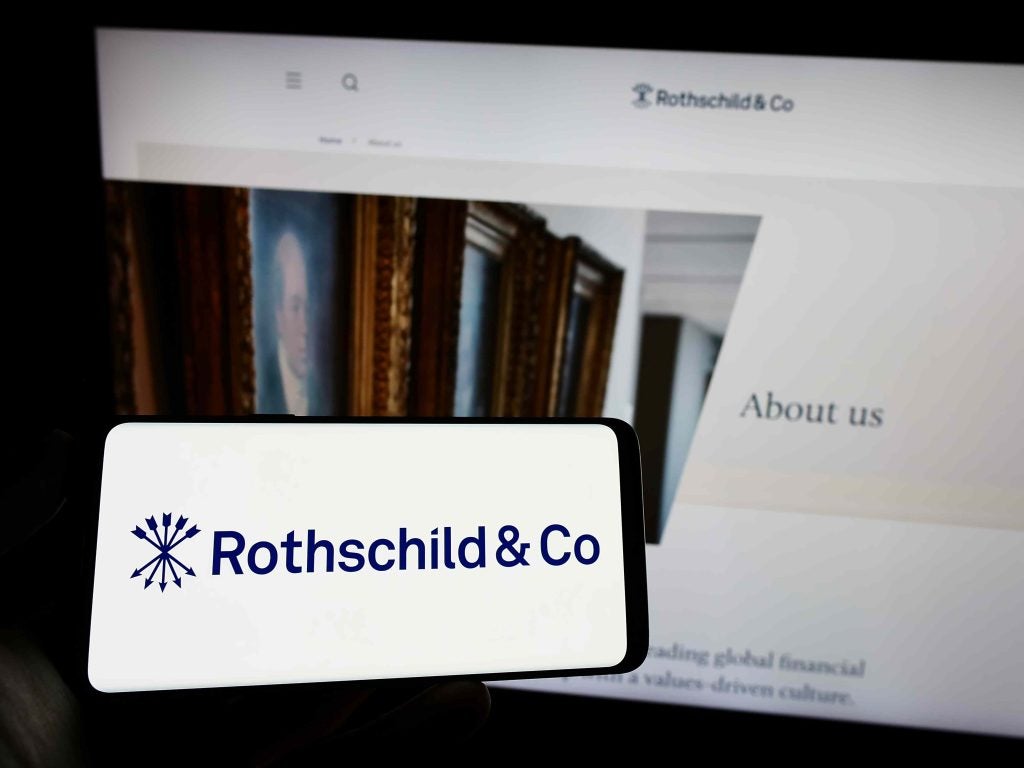
With women expected to outlive their male spouses by at least two years, women are likely to inherit an abundance of wealth. But how female-centric are private banks and wealth managers and what are they doing to cater to women ahead of this transfer of wealth?
Most recent data by the UK’s Office for National Statistics (ONS) shows that between 2014 to 2016, a man in the UK aged 65 had an average further 18.5 years of life remaining compared to 20.9 for a woman.
Research by consultancy Boston Consulting Group shows that women currently hold 30% of global wealth or about $39.6trn. This represents a 3% increase since BCG’s last report on women published in 2010 based on 2009 data. Back then at the crux of the recession, women owned 27% of global wealth, equivalent to $20trn.
Yet only 10% of female wealth management clients use a relationship manager as a primary source of investment advice, with gender being the least important client segmentation factor to wealth managers.
Accenture’s head of wealth management and managing director, Kendra Thompson, says: “Those upcoming female investors within Generation X and millennials who are likely to marry later have their own career and expect advice that is tailored to them as individuals and not just as a construct of being a couple.”
But she adds: “There is no direct correlation to women’s choices and whether or not the person serving them is a man or a woman. “
How well do you really know your competitors?
Access the most comprehensive Company Profiles on the market, powered by GlobalData. Save hours of research. Gain competitive edge.

Thank you!
Your download email will arrive shortly
Not ready to buy yet? Download a free sample
We are confident about the unique quality of our Company Profiles. However, we want you to make the most beneficial decision for your business, so we offer a free sample that you can download by submitting the below form
By GlobalData“It has much to do with the style and tone of the advisory conversation than the gender of the bank advisor.”
Private banks interviewed by PBI are all implementing different strategies aimed at understanding women to better serve them.
HSBC UK
A report published by HSBC in February 2018 called Talking Everyone’s Language found the financial advice sector has an over reliance on financial jargon that can deter women from investing.
The report prompted the UK-based private bank to trial ‘split appointments’ to give customers, mainly women more time to absorb the information received in the first appointment.
HSBC UK’s head of premier wealth insights, Michelle Andrews says: “This follows the report findings that female customers prefer to spend longer considering investment options.”
She adds: “Additionally, 72% of women say they do not like to take investment risks compared with 54% of men and women are more likely to believe that stocks and shares investments are too risky.”
She continues: “Reaching out to female customers through split appointments will help to address this, as it will give clients some initial time with a relationship manager, before going away and thinking about the investment suggestions that they have been given.”
“It also gives them the chance to discuss their thinking with another source, such as a close friend, during their decision-making process.”
The bank also holds colleague coaching sessions to mitigate the use of unnecessary jargon while dealing with clients and holding investment events designed for female customers to encourage peer motivation and an understanding of the investment landscape.
UBS WEALTH MANAGEMENT
UBS Wealth Management, the world’s largest private bank has implemented a programme called UBS Unique.
A key aim of the project is to educate a million women on investments by 2020.
“We are working on an online financial confidence self-assessment tool which has already been made available at book events,” the bank says.
“We do not market to women specifically. We provide research insights and provide platforms for our female clients to connect with others, thereby adding value.”
UBS aims to increase the ratio of women in senior management roles to one third. It is currently at about 25%. The bank did not comment by when it aims to achieve its one third target.
BNP PARIBAS WEALTH MANAGEMENT
BNP Paribas Wealth Management’s co-CEO, Sophia Merlo, tells PBI it assists women entrepreneurs through regular lunches, meetings, dedicated training sessions and inform them of opportunities that can help them further develop their businesses.
More than half, 52% of BNP Wealth Management’s work force is made up of women.
Merlo says an effective strategy covering supporting women entrepreneurship should cover three areas: understanding, serving and celebrating women.
BNP Paribas Wealth Management honours its female role models with the Global Prize for Women Entrepreneurs.
Mignonne Cheng, chairman for BNP Paribas Wealth Management Asia-Pacific, comments: “We honour distinguished role models with our Global Prize for Women Entrepreneurs. Founded in partnership with FCEM (Femmes Chefs d’Entreprises Mondiales), this award provides a public space where the success of some women will inspire others, and the younger generation in particular.”
On 14th of April 2018, BNP Paribas Wealth Management will name the new woman who wins the BNP Paribas Global Prize for Women Entrepreneurs
The French private bank has also partnered with WILLA to sponsor the International Female Tech Startupers Barrometer survey.
The bank has been running its Global Entrepreneur Report for the last four years in which among others, it analyses the investment preferences of wealthy HNW women.
Each year it also hosts 40 different talented women entrepreneurs for a week-long programme on leadership and accelerating business at The University of Stanford.
Merlo comments: “The aim of the programme is to meet the needs of businesswomen and to offer a unique mix of knowledge, skill acquisition and development. “
Among the senior managers at the bank, 27% are women. The bank is aiming to increase this figure to 30% by 2020. BNP Wealth Management aims to increase the number of women working in global market positions.
Women account for nearly half the appointments among the group’s top 100 managers.
The French wealth manager also aims to recruit more men in human resources an industry that typically have a higher ratio of women.
CREDIT SUISSE PRIVATE BANK
Credit Suisse offers a cross divisional mentoring programme for its top female employees at vice-president and associate vice-president level.
The bank also says it provides a strong network that supports “Credit Suisse’s goal to attract, empower and retain female talent and actively facilitates and promotes gender related dialogue.”
The bank’s research institute has conducted a number of surveys aimed at better understanding women.
In 2017, women accounted for 38% of its employees compared to 35% in 2013. Some 20% of women hold senior leadership positions at the bank compared to 16% in 2013.
Credit Suisse has also been promoting the financial services industry to women in developing countries.
Credit Suisse says: “We run a financial education programme for girls in Brazil, China and Rwanda. The programme aims to improve the financial education and life skills of approximately 100,000 adolescent girls across those countries and to encourage them to transition through secondary school.”
He continues: “We regard education and access to financial services as key drivers of growth and an effective means of empowering people to help themselves.”
JULIUS BAER
Annabel Bosman, managing director and head of relationship management at Julius Baer, says: “The focus needs also to turn to how we encourage, nurture and support younger women to come in to the industry and create the next generation of relationship managers and private bankers.”
She adds: “Rather than try to say something different to our female clients which can often come across as patronising, we centre all our conversations around finding out what really matters to them. This can be done in a gender agnostic voice and allows us to find the best holistic solution for them, their values, interest and goals in life. “
The bank says it expects to join the UK Treasury’s Women in Finance Charter in 2018 “once we have finalised our internal objectives around gender diversity.”
This is a commitment by HM Treasury and signatory firms to work together to build a more balanced and fair industry.
As of November 2017, more than 160 firms are part of the charter.
The bank is looking to hire more female relationship managers. It also works closely with women in the business to ensure it is “supporting and nurturing its existing talent pool to create the next generation for Julius Baer,” as well with the families of their clients.
It provides its female clients the chance to network with each other and build understanding as well working with the clients’ families.
Speaking to PBI, Urs Fehr, deputy head of marketing communications at Falcon Private Bank says: “Our experience showed that female clients are very well informed and that they don’t usually require female-specific financial services.”
She adds: “We welcome a balanced gender mix, but we do not have a gender quota in our organisation.”
Asian Example
Several banks interviewed by PBI highlight a major anomaly in the number of women working in wealth management.
Asia has more female bankers than other parts of the world. In the case of BNP Paribas Wealth Management and UBS Wealth Management, they both told PBI the number of women private bankers working at the financial institutions outnumber the number of male private bankers in Asia.
Furthermore, seven out of the nine members of Hong Kong’s Private Wealth Management Association are women.
In contrast, the Geneva-based Association of Swiss Private banks has a six member committee that is all men, the Swiss Bankers Association (SBA) has a 19 member board that contains one woman.
Pressed by PBI on the issue, SBA’s head of public and media relations, Sindy Schiegel, says: “Gender is not a criterion for membership in the SBA’s BoD.”
She adds: “Many banks, however, invest in augmenting the share of female staff on all levels. Recent data shows that these efforts are bearing the first fruits on certain career levels.”
The rising number of female billionaires in Asia is also worth noting.
UBS says the number of Asia’s female billionaires has grown by almost 13 times from 2005 to 2016 and represented 6% of the total Asian billionaire population. In contrast, the number of female billionaires in Europe grew just 2.8 times in the same time frame.
What is driving this regional difference between Asia and the West?
Bosman says: “In many Asian countries the rapid rise of wealth creators has meant a shift away from the traditional face of the millionaire as being middle-aged or older and male and many wealth managers in Asia have been smart in developing talent to mirror this.”
This is in line with UBS’ view. “As Asia leads the way in wealth creation, many Asian women have told us that they wish to be served in ways that focus more on family and legacy than pure investment outcomes.”
UBS adds: “In the three Greater China countries, females outnumber male staff at UBS, therefore we have to aspire to have the right frameworks in place to support working moms in Asia.”
“We offer a minimum of 16 weeks paid parental leave across all our countries in Asia to the primary care giver and many of our new parents utilise other forms of extended leave options before returning permanently to work.”
In the case of Singapore, UBS even has an on-site medical clinic to provide convenience for mums that are short on time. In most APAC offices UBS has a designated mothers’ room for feeding babies or expressing milk.
Credit Suisse says: “One reason for the disparity in some markets is that school systems or the availability of child care do not make it easy for mothers to rejoin the work force.”
Thompson gives another view on the regional disparity. “Asian investors are generally younger and less risk averse. “They are more interested in a more gamified, gambling type of investing experience.”
“They are much more interested in access to credit and highly leveraged investing
PBI research shows almost all wealth managers are involved in different ways to increase both female clientele as well as female staff.
So what can wealth managers do to achieve gender neutrality even at the top level?
The answer may not be a straightforward one, but the Asian example highlights that it is possible for the proportion of women to be equal and even greater than men.
Wealth managers have tried and tested several useful mechanisms, from networking events, surveys and increasing the knowledge of female clients.
The only missing element that other regions could do more of is to make it easier for mothers in the industry to have a work life balance.
BNP Paribas Wealth Management’s goal to increase the number of men in HR positions is an example where the bank’s commitment to gender diversity is not solely focused on women.
But offering more flexibility for female private bankers, who are also busy mothers; and making it easier for female private bankers who have reared their children and wish to return to work, should be the next focus to attract more women into the private banking and wealth management industry, world-wide well beyond the borders of the Asia-Pacific.








